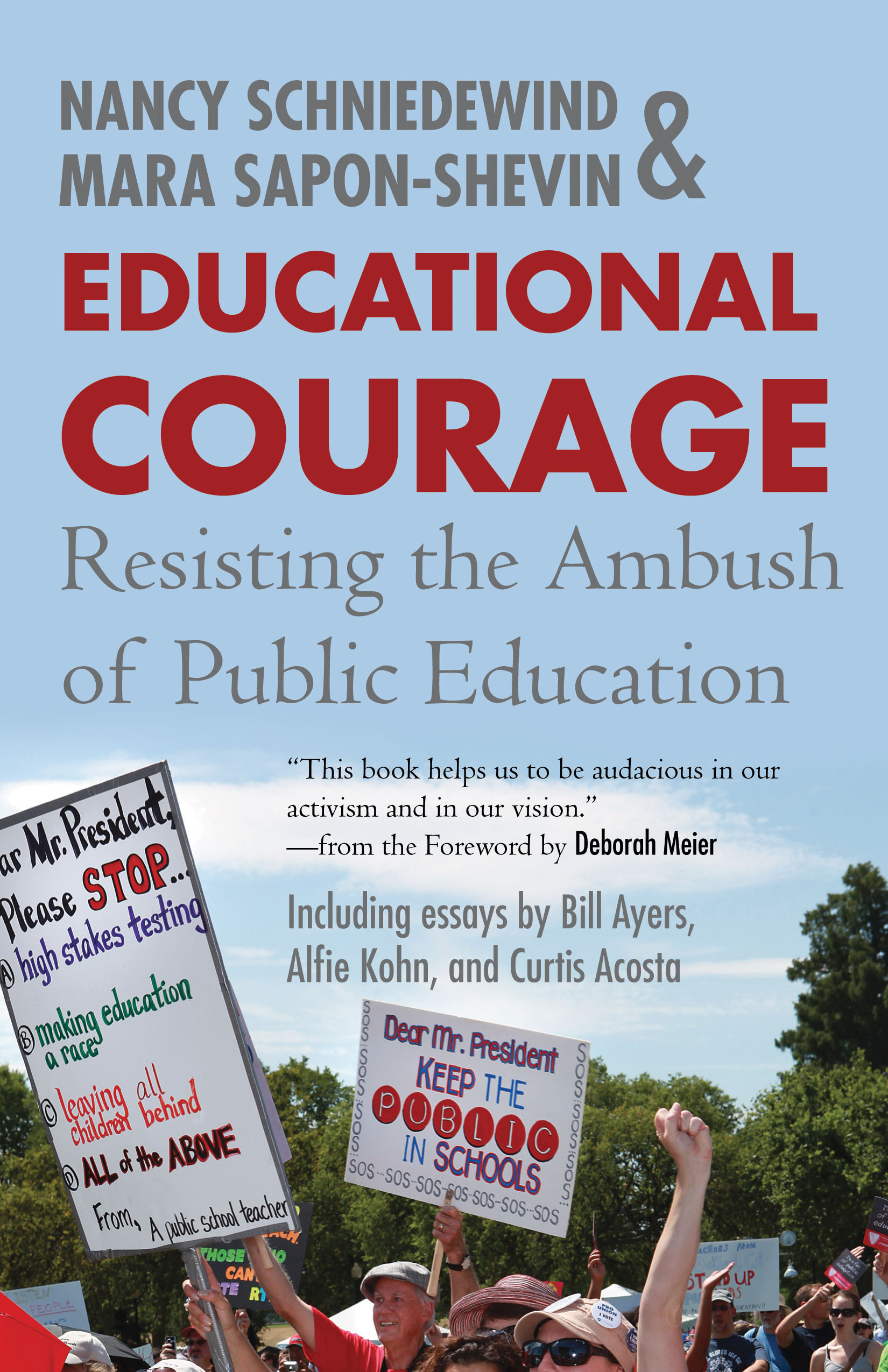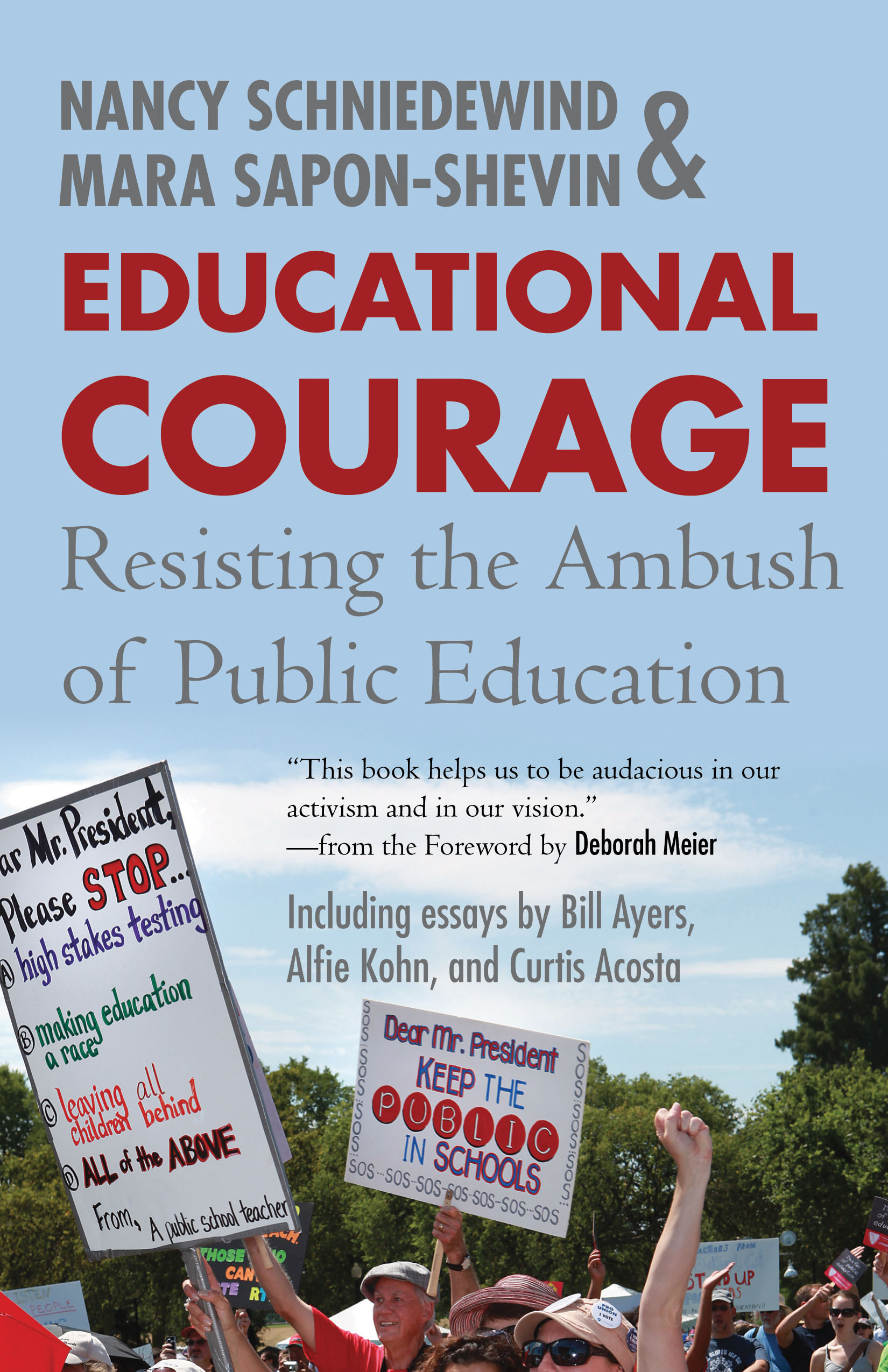 In a recent blog post Diane Ravtich ponders How Teachers Can Stop the Organized Attack on Teaching. In her discussion she stresses the importance of collective action and refers to the courageous act my good friend, Sam Coleman, took in order to help his whole school stand up against the New York City Department of Educations merit pay experiment, the Bonus Plan. I was deeply honored when Sam asked me to co-write this story for the book Educational Courage: Resisting the Ambush of Public Education. You can read what we co-wrote on The Answer Sheet blog of the Washington Post, but what I wanted to share here were three key lessons that we wrote in the conclusion of that chapter.
In a recent blog post Diane Ravtich ponders How Teachers Can Stop the Organized Attack on Teaching. In her discussion she stresses the importance of collective action and refers to the courageous act my good friend, Sam Coleman, took in order to help his whole school stand up against the New York City Department of Educations merit pay experiment, the Bonus Plan. I was deeply honored when Sam asked me to co-write this story for the book Educational Courage: Resisting the Ambush of Public Education. You can read what we co-wrote on The Answer Sheet blog of the Washington Post, but what I wanted to share here were three key lessons that we wrote in the conclusion of that chapter.
1. The Power of Process.
Sam’s story is a wonderful model for change based on a process of reflection, analysis, and action—an approach Brazilian thinker Paolo Freire described as liberation. Sam’s act of courage began with his reflection on the injustices that are present in the “trees and forest” of the educational landscape. Through inquiry with others, analysis and broader action emerge.
2. The promises and pitfalls of teacher unions and teacher unionism.
Historically, unions have been central to improving work conditions. Unfortunately, the promise of tackling issues beyond contract bargaining has been limited. Perhaps most frustratingly, unions will sometimes limit their own democratic process in order to appease management, make deals with politicians, and keep particular leaders in power rather than organizing members to engage in these struggles and to engage with the communities we serve in respectful and responsive ways.
Still, we remain hopeful, as grassroots organizing by educators in places like Chicago and Milwaukee, have led to the election of more justice-oriented union leaders. We believe that understanding how unions operate and moving them toward social justice unionism will greatly affect the depth of analysis and the power of action by educators.
Being from New York City, we are particularly hopeful of the emerging social justice-oriented caucus within the United Federation of Teachers, the Movement of Rank and File Educators (MORE).
3. We Must Be in This Together!
Living and working in tough times, educators are in a vulnerable position, but stories like Sam’s raise hope. Sam’s story illustrates how powerful and necessary it is to stand up and stand together for a more just world. Sam’s act of courage should refuel those of us committed to defending and transforming public education. There are many parents, youth, and education workers, out there in the fight. By working collectively, honing a deeper understanding of what affects education, and taking action, we are creating a groundswell of strength that will help us challenge the daunting situation we all face.

Comments by emayorga